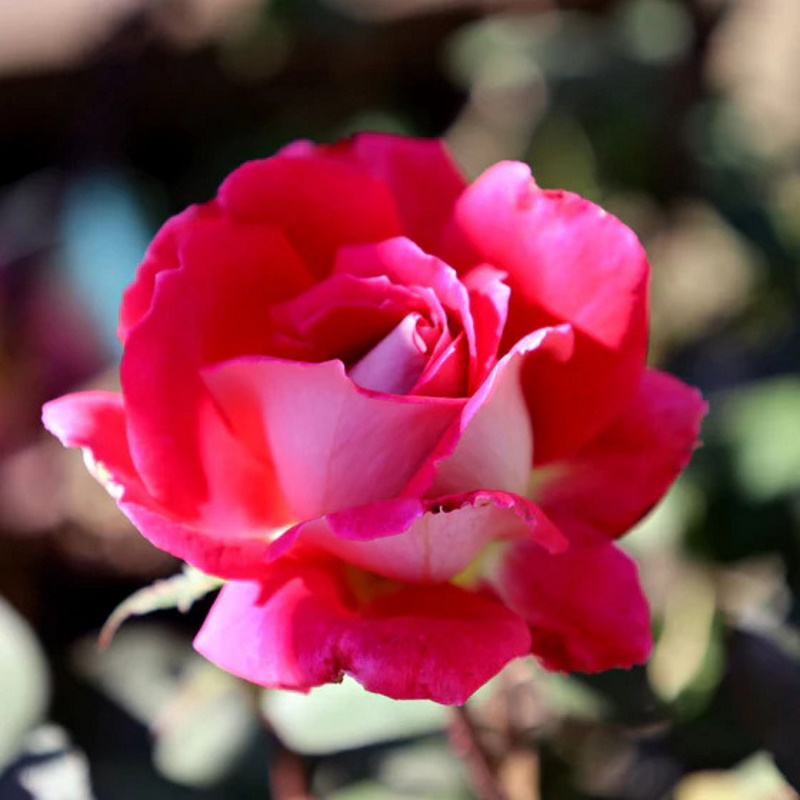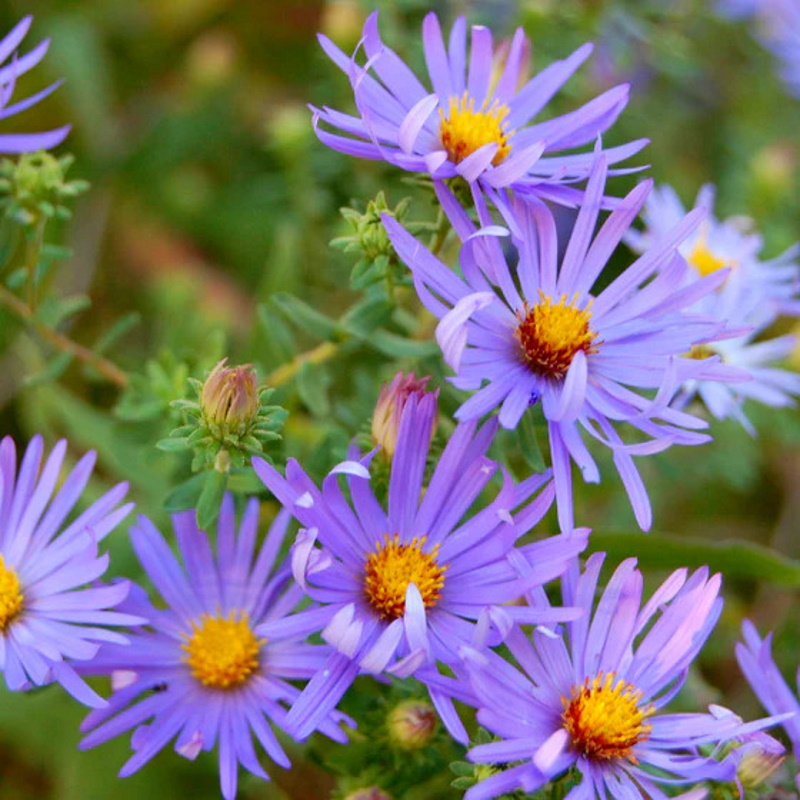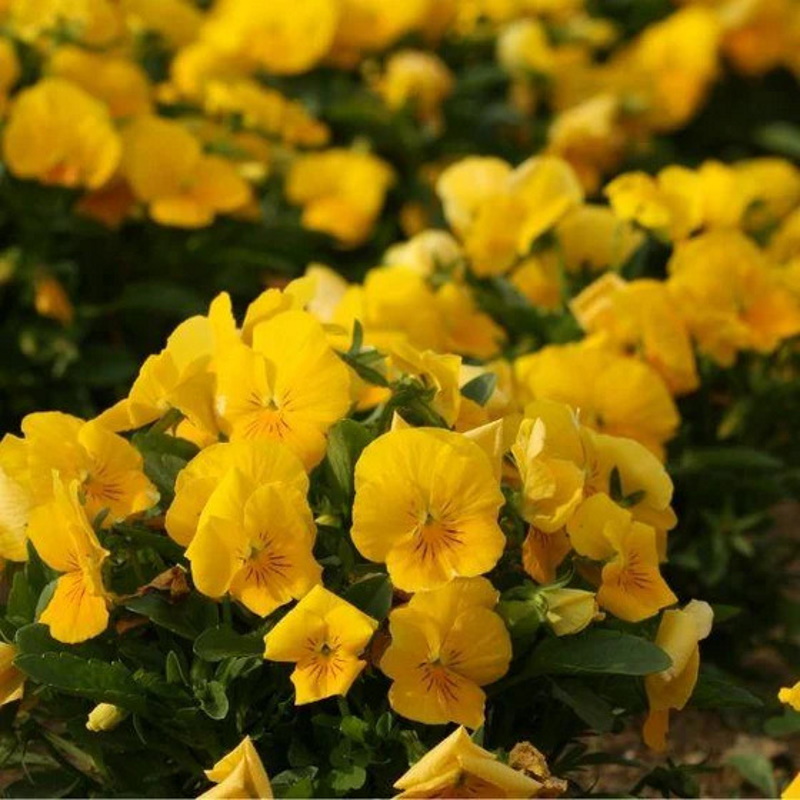Are hydrangeas toxic to cats? Experts warn that these popular summer blooms can harm pets
Curious felines tempted by these bright, spherical blooms could become unwell if they take a bite

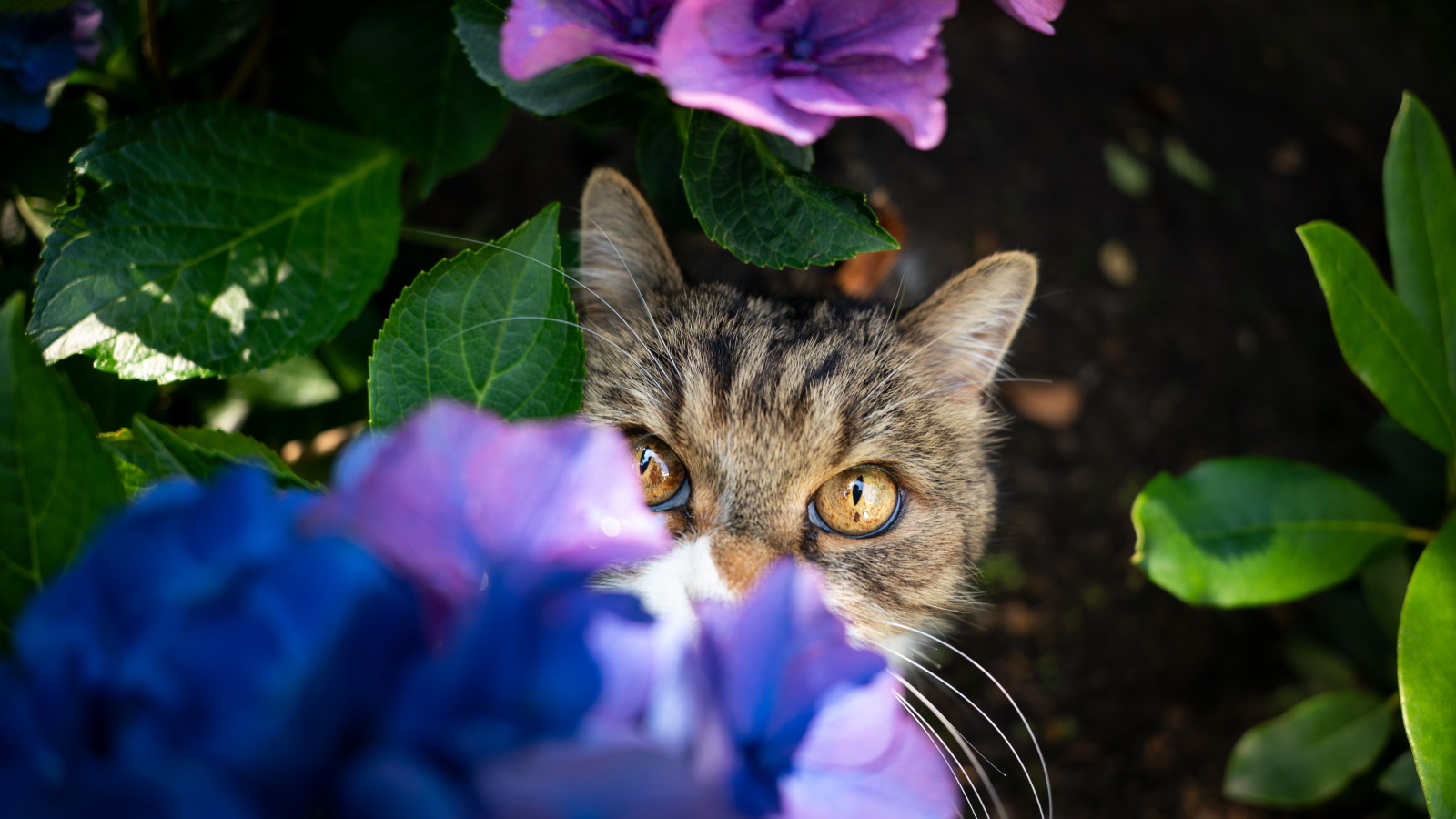
Design expertise in your inbox – from inspiring decorating ideas and beautiful celebrity homes to practical gardening advice and shopping round-ups.
You are now subscribed
Your newsletter sign-up was successful
Want to add more newsletters?

Twice a week
Homes&Gardens
The ultimate interior design resource from the world's leading experts - discover inspiring decorating ideas, color scheming know-how, garden inspiration and shopping expertise.

Once a week
In The Loop from Next In Design
Members of the Next in Design Circle will receive In the Loop, our weekly email filled with trade news, names to know and spotlight moments. Together we’re building a brighter design future.

Twice a week
Cucina
Whether you’re passionate about hosting exquisite dinners, experimenting with culinary trends, or perfecting your kitchen's design with timeless elegance and innovative functionality, this newsletter is here to inspire
When exploring different backyard ideas and choosing which plants to grow in your garden, it's important to take into consideration your lifestyle. For pet owners, this means making sure you have pet-friendly plants that aren't toxic and won't harm your furry companions if they get a little curious.
Unfortunately, unlike cat safe indoor plants, hydrangeas are among the mid-to-late summer flowers that are toxic to cats. They contain toxins that if ingested by felines could cause illness.
There are so many hydrangea varieties to choose from and they're highly versatile - you might choose to grow hydrangeas in pots or cut them for flower arrangements - but it's important to know they have the potential to harm your cat. We've asked experts 'are hydrangeas toxic to cats?' and here's what they had to say.
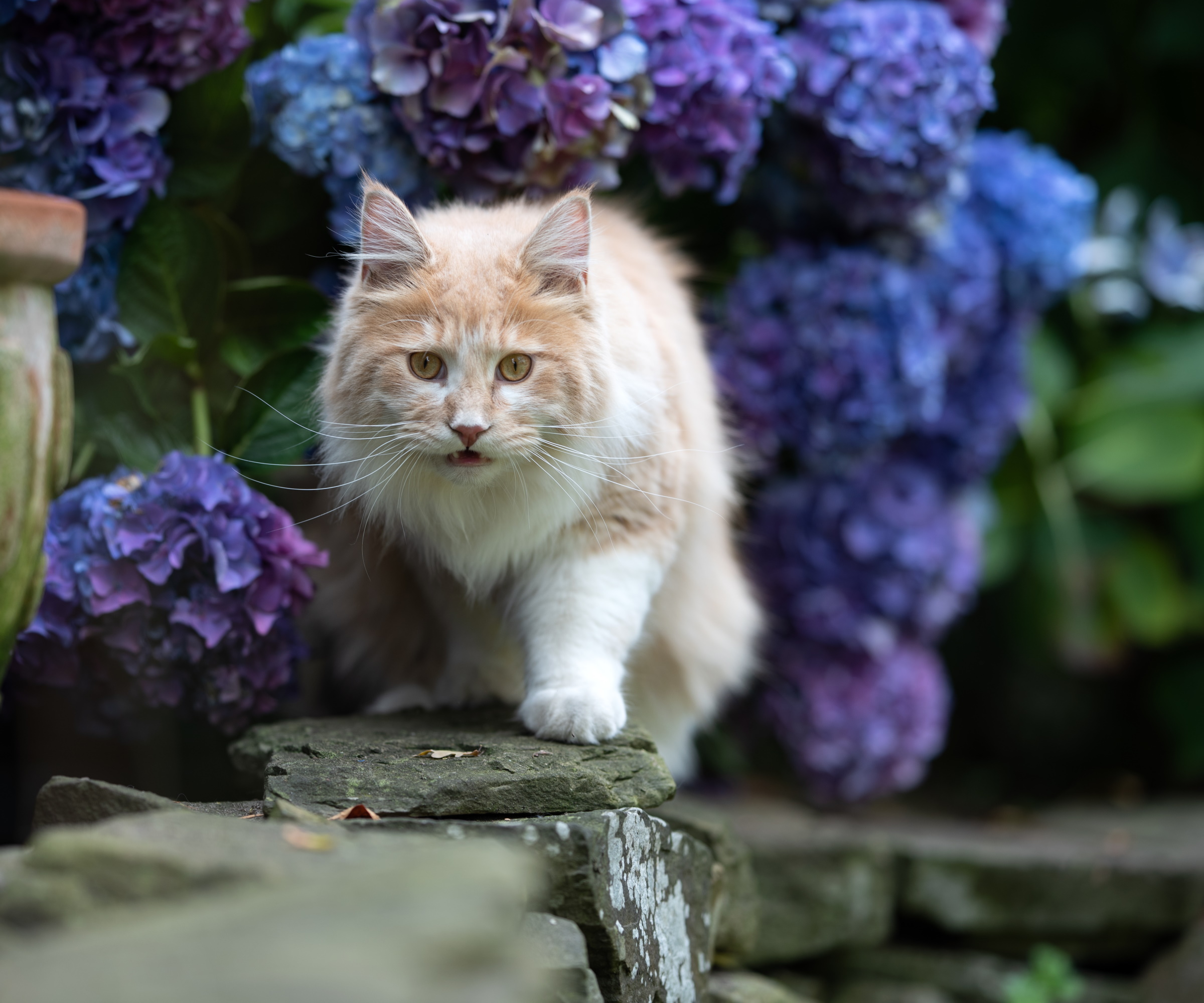
Are hydrangeas toxic to cats?
The short answer is yes, hydrangeas are toxic to cats and it's important to understand the risk before choosing to plant them in your yard. But don't worry, we've asked experts what you should do if your cat has eaten a hydrangea.
What happens if your cat eats a hydrangea?
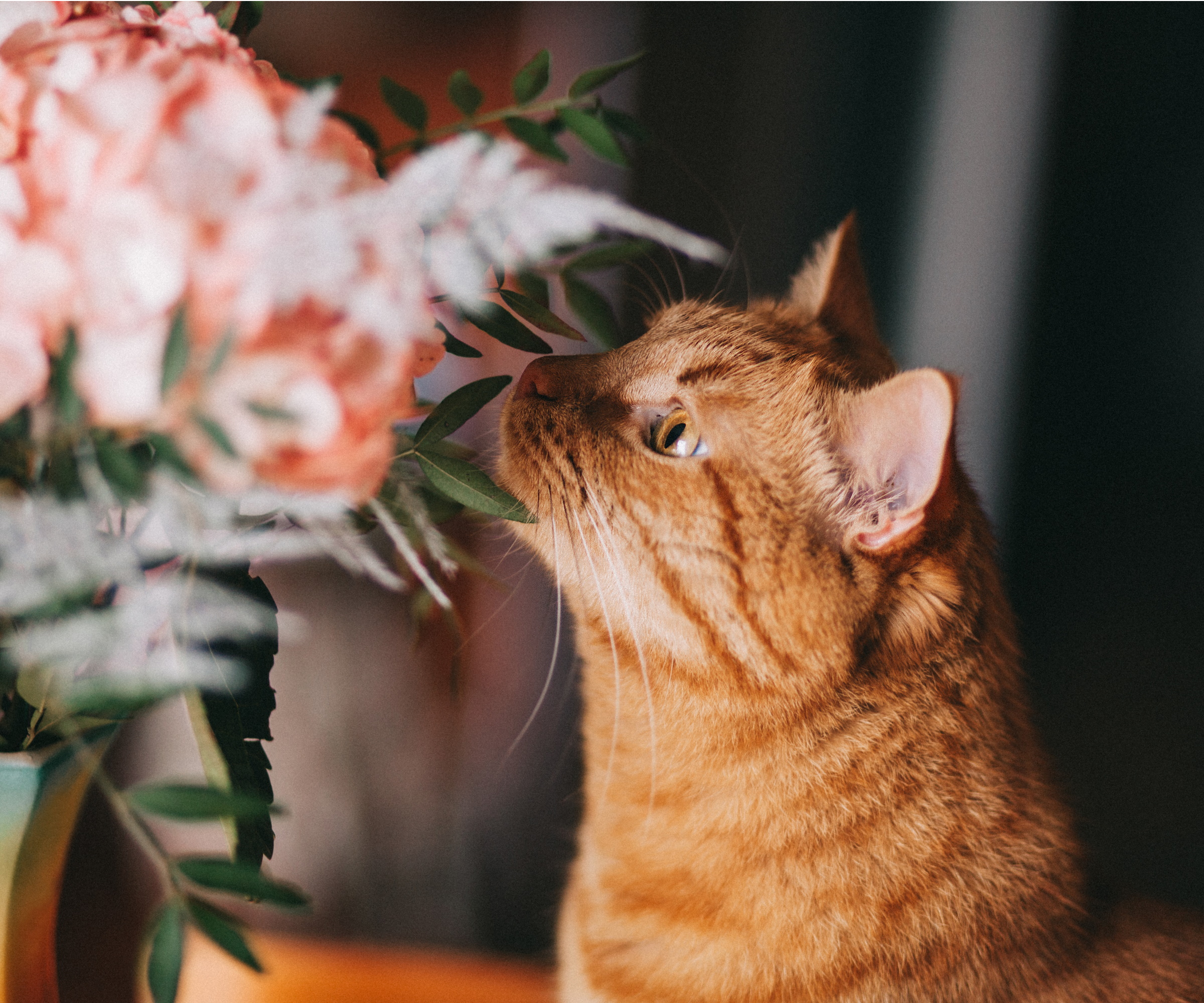
Plants that are considered unsafe for pets usually contain toxins that will make them unwell if ingested. In the case of hydrangeas, the harmful toxins are cynaogenic glyosides.
'When consumed, these compounds cause gastrointestinal disturbances,' says Dr. Aziza Glass, vet and Owner of CAWLM Veterinary Hospital. 'As cats eat the plant, the toxin is activated and can even progress into cyanide poisoning,' she adds.
All parts of the hydrangea are toxic and Dr. Glass notes it is hard to determine how many leaves and flowers need to be ingested to become toxic. In fact, dogs are also likely to become unwell from ingesting hydrangeas. 'However, cats are more prone to more severe toxicity compared to dogs due to their smaller size,' Dr. Glass explains.
Design expertise in your inbox – from inspiring decorating ideas and beautiful celebrity homes to practical gardening advice and shopping round-ups.
Depending on the volume of the plant ingested, your cat may experience different symptoms. 'Pets may experience signs as mild as lethargy, to more severe complications like vomiting, diarrhea and overall gastrointestinal complications,' says Mary Helen Horn, pet health expert and President at ZIWI. 'If left untreated or in prolonged ingestion period, it could become fatal,' she adds.

Dr. Glass is the owner of CAWLM Veterinary Hospital, where she focuses on integrative medicine with an emphasis on acupuncture and other alternative modalities. Dr. Glass is dedicated to promoting pet health and offers veterinary advice.

Mary Helen Horn is a leader in the pet food industry and serves as President & Executive Director at ZIWI, a leading brand in pet nutrition worldwide. With two decades of industry experience, she is dedicated to educating pet owners about the vital role of nutrition in maintaining pet health.
What should you do if your cat eats a hydrangea?
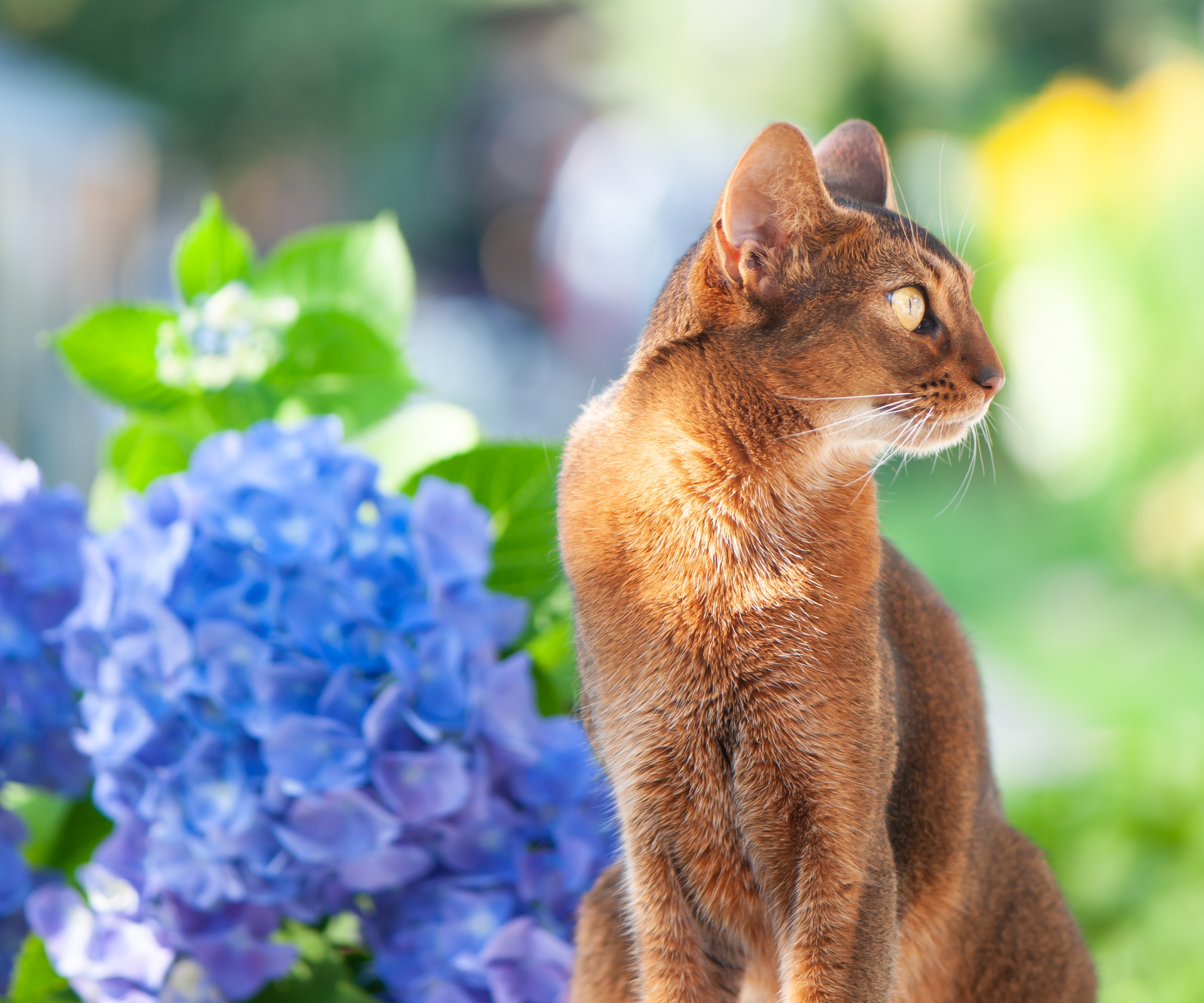
Fortunately, while it isn't impossible, experts note that it is unlikely cats will experience severe symptoms from hydrangea poisoning.
'Thankfully this severity of hydrangea poisoning is rare,' says Dr. Tony Coronado, veterinarian and Vice President of Emergency Medicine for Thrive Pet Healthcare.
Nevertheless, it is always best to seek professional veterinary advice if you suspect your pet has ingested something they shouldn't have.
'You should always contact a veterinarian, Pet Poison Helpline at 855-764-7661 or the ASPCA Poison Control at 888-426-4435 as soon as possible,' Dr. Coronado says. 'Do not wait until you see signs of toxicity. Successful management of any toxin ingestion is rooted in early care and decontamination,' Dr. Coronado adds.

Dr. Coronado is a seasoned veterinarian with a passion for helping animals during critical moments. A graduate of the University of Illinois College of Veterinary Medicine, he began his career in general practice before transitioning to emergency medicine after five years. Dr. Coronado has dedicated the last 25 years to building and managing specialty and emergency facilities. He currently serves as the Vice President of Emergency Medicine for Thrive Pet Healthcare.
Discover cat-friendly flowers online
FAQs
How do you keep cats safe from hydrangeas?
Hydrangeas contain toxins that will make your cat unwell if they ingest it. The easiest way to keep your cat safe from hydrangeas is choosing not to plant them in your backyard or have them on display in your home. However, if you still want to grow these beautiful blooms you can keep your cats safe by placing a barrier around them to discourage your cat approaching the toxic plant. Alternatively, you can spray the plant with pet-safe deterring products. You can also supervise to ensure your cat doesn't nibble at your hydrangeas. Make sure to always seek veterinary advice if you think your pet has ingested toxic plants.
Are hydrangeas toxic to dogs?
Yes. Hydrangeas are toxic to all pets because they contain toxins called cynaogenic glyosides. When ingested by dogs, these toxins can cause gastrointestinal complications and your dog may experience vomiting among other symptoms. However, experts note that due to their smaller size, cats are more likely to experience hydrangea poisoning than dogs.
As beautiful as hydrangeas are, they are unfortunately toxic to cats and you should be wary of planting them in your garden if you have a curious feline in your home.
If you are a cat owner planning what to plant in your backyard this year, make sure to familiarize yourself with other plants that are toxic to cats to keep your furry companion safe.

Tenielle is a Gardens Content Editor at Homes & Gardens. She holds a qualification in MA Magazine Journalism and has over six years of journalistic experience. Before coming to Homes & Gardens, Tenielle was in the editorial department at the Royal Horticultural Society and worked on The Garden magazine. As our in-house houseplant expert, Tenielle writes on a range of solutions to houseplant problems, as well as other 'how to' guides, inspiring garden projects, and the latest gardening news. When she isn't writing, Tenielle can be found propagating her ever-growing collection of indoor plants, helping others overcome common houseplant pests and diseases, volunteering at a local gardening club, and attending gardening workshops, like a composting masterclass.
